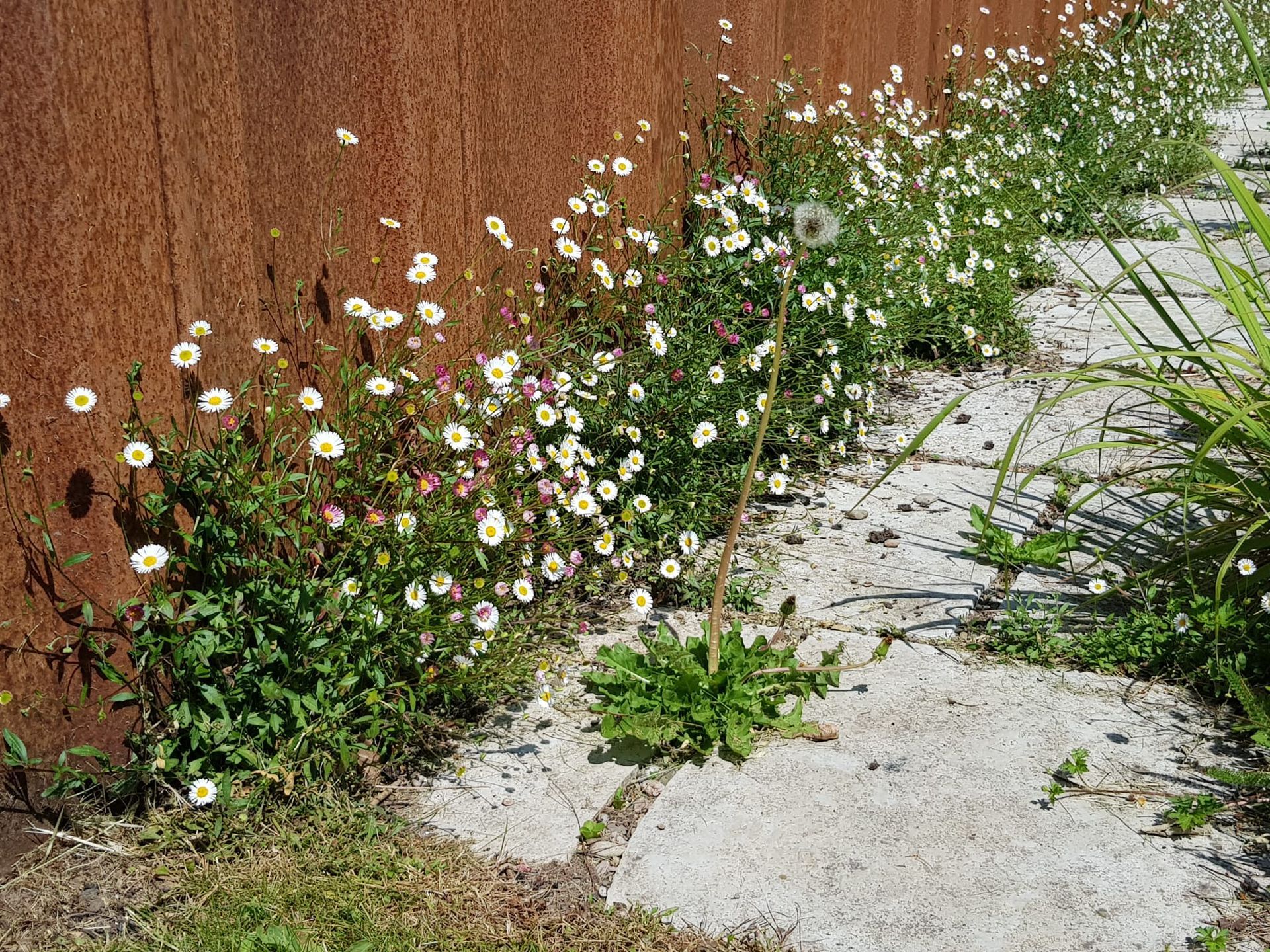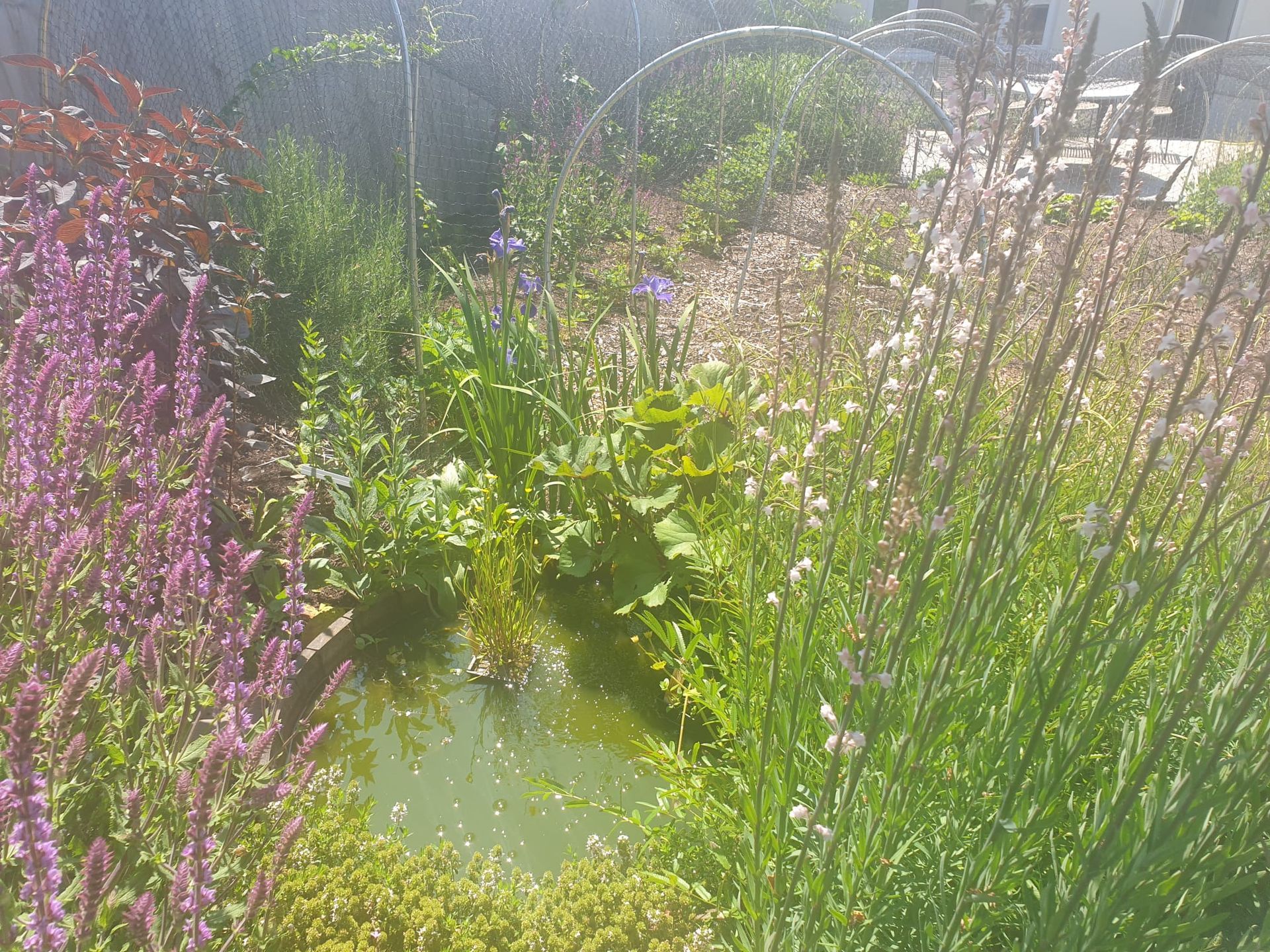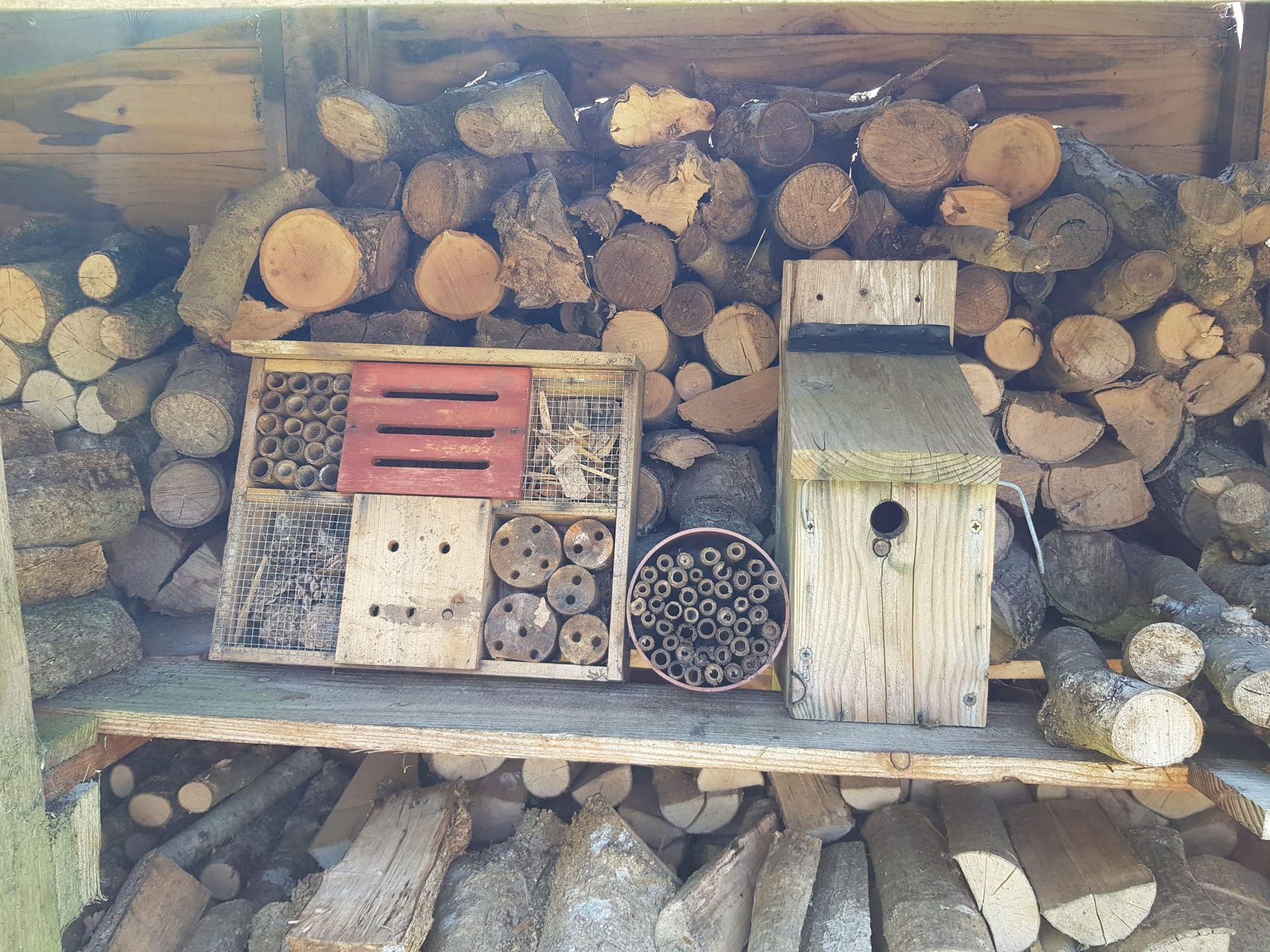

The Powys Nature Partnership is collaborating on nature recovery in Powys.
1MetreMatters is a great initiative to support wildlife in a small area, which will increase biodiversity in our landscape. By taking part, you will be contributing to the delivery of the Powys Nature Recovery Action.
A Big HELLO to You!
A welcome from On The Verge Chair – Martin Draper.
If you are new to the world of wildlife habitats and environmental issues, or if you are an experienced conservationist, your presence on this initiative will, I promise you, make a difference.
There can be no doubting the present peril in which our insects find themselves. For too long we human beings have contributed to their demise, if not with intent, then with a mistaken belief that they matter little to our day-to-day existence.
Of course, the opposite is true.
Without their valuable involvement to the pollination process our choice of food would be severely limited; notwithstanding their impact on all living creatures.
In our 1MetreMatters initiative we aim to personalise insects in their own right – by showing them as individuals, each with their own personalities and peculiarities; just like human beings!
Our hope is that, as a result of taking part in this scheme, YOU will be responsible for the upturn in the insects lives and the proliferation of our natural world.
We will be with you every step of the way...
1 MetreMatters
One woman and her garden journey...
Listen to Rebecca and her journey to a more sustainable garden
Rebecca Rea is an animal communicator, therapist for people and animals, teaches meditation and is a nature artist. She shares some top tips from her experience of wilding.
You can contact Rebecca at www.theanimalhealer.life
1 MetreMatters
Season's Actions Autumn to Early Winter
EXAMPLES OF HABITATS WITH NATURE IN MIND...
Unfortunately, many gardeners still think of hack-it-all-down and rake-it-all-up gardening clean up as good gardening.
We now understand how our gardens and outdoor spaces can become havens for creatures, large and small, depending on what we plant in them and how we tend to our cultivated spaces.
Thanks to books like Doug Tallamy’s Bringing Nature Home, we now know how important native plants are for insects, birds, amphibians and even people.
Our gardens play an important role in supporting wildlife and what we do in them every autumn can either enhance or inhibit that role.
Three things we can do in our Autumn gardens to help wildlife.
1. Provide shelter for the Native Bees
Many species of native bees need a place to spend the winter that is protected from cold and predators. They may hunker down under a piece of peeling tree bark, or they may stay tucked away in the hollow stem of an ornamental grass. Some spend the winter as an egg or larvae in a burrow in the ground.
2. Leave the Garden intact for Ladybirds
Most of them enter the insect world’s version of hibernation soon after the temperatures drop and spend the colder months tucked under a pile of leaves, nestled at the base of a plant, or hidden under a rock. Most overwinter in groups of anywhere from a few individuals to thousands of adults. Leaving the garden intact for the winter means you’ll get a jump start on controlling pests in the spring. Skipping an Autumn gardening clean-up is one important way to help these beneficial insects.
And, of course, we won’t need neonicotinoid sprays to “control” sap sucking insects.
3. Save Garden Clean-up Until Spring to Help You
If the previous two reasons aren’t enough to inspire you to hold off on cleaning up the garden, I’ll add one final reason to the list: You. There is so much beauty to be found in a winter garden. Snow resting on dried seed pods, berries clinging to bare branches, goldfinches flitting around spent sunflowers, frost kissing the autumn leaves collected at the base of a plant, and ice collected on blades of ornamental grasses. At first, you might not consider yourself to be one of the reasons not to clean up the garden, but winter is a lovely time out there, if you let it be so.
Delaying your garden’s clean up until the spring is a boon for all the creatures living there. Instead of heading out to the garden with a pair of pruning shears and a rake this Autumn, wait until the spring temperatures warm up for at least 7 consecutive days. By then, all the creatures living there will be emerging from their long winter nap. And even if they haven’t managed to get out of bed by the time you head out to the garden, most of them will still manage to find their way out of a loosely layered compost pile before it begins to decompose. Do Mother Nature a big favour and save your garden clean up until the spring.
Based around https://savvygardening.com
1 MetreMatters
Words to help you understand, start or sustain your environmentally focused journey...
The Biodiversity Gardener
by Paul Sterry
Published by Princeton University Press
“My biodiversity garden did not appear overnight. It is the culmination of a series of projects that complement one another and work with the surrounding environment; the result being ecological synergy. I would wager that there is more nature biodiversity, and far more abundance per square metre, in my half acre garden than on land nearby”.
A Sand County Almanac
by Aldo Leopold, 1949
“Even in Britain, which has less room for land luxuries than almost any other civilised country, there is a vigorous if belated movement for saving a few small spots of semi-wild land”.
1 MetreMatters
Book recommendations for information, education & pleasure
Second Nature
by Michael Pollan
“An important and profoundly original book... A well-developed philosophy of life and nature in a technological world”. Kirkus Reviews
The Golden Mole
by Katherine Rundell
“A rare and magical book. I didn’t want it to end”. Bill Bryson
Deep Country
by Neil Ansell
“Find your deepest, most comfortable armchair and get away from it all”. Countryfile






